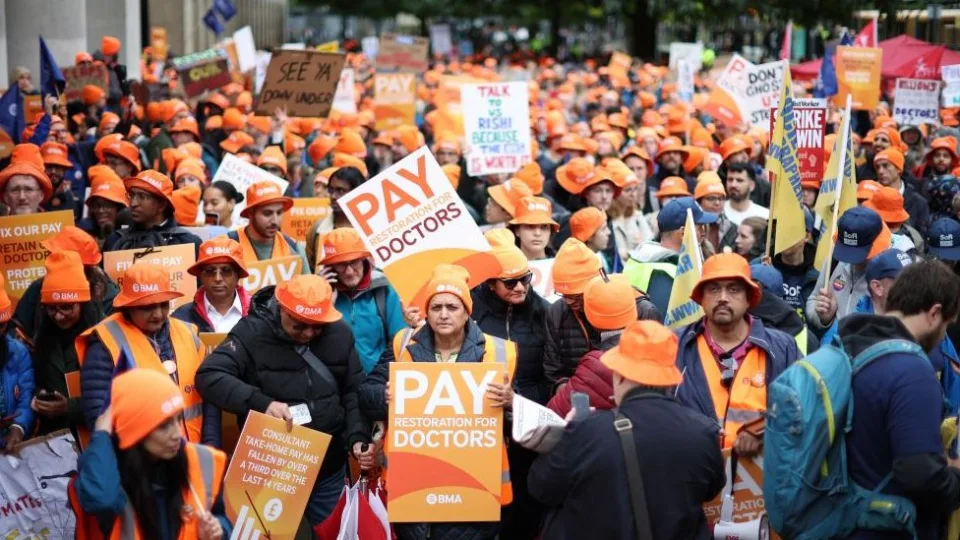Junior doctors in England are set to hold talks with government officials with the aim of resolving their long-standing dispute over pay and conditions in the National Health Service (NHS). The British Medical Association (BMA) announce that it had agree to engage in talks, although the Department of Health and Social Care (DHSC) clarify that pay would not be discuss during the negotiations.
The Upcoming Meeting
The meeting between junior doctors and government representatives is expect to take place next week, although a specific date has not confirm yet. The BMA expressed its willingness to listen to what the government has to say. koin303
A spokesperson for the DHSC state that they please with the BMA Junior Doctors’ Committee’s decision to participate in talks. Their hope is to find a resolution and end the ongoing dispute.
However, the DHSC emphasize that pay would not be up for discussion. They note that doctors had already receive a fair and reasonable pay increase, as recommend by an independent pay review body, which the government had accept in full. This translate to a 10.3% pay increase for doctors who commence their hospital training this year, with an average junior doctor receiving an 8.8% pay increase.
Inclusion of SAS Doctors
The BMA has also conveye that specialist, associate specialist, and specialty (SAS) doctors in England will engage in discussions with the government. The SAS Committee of the BMA state that if no significant progress is made by 6 November, they would proce to conduct a formal ballot for industrial action.
SAS doctors primarily work in hospitals, alongside junior doctors and consultants, although some are also base in community healthcare settings. coin303
Dr. Ujjwala Mohite, Chair of the SAS Committee UK at the BMA, stress the importance of addressing SAS doctors’ concerns. The BMA hopes to avoid resorting to industrial action and anticipates that the upcoming negotiations will lead to meaningful progress. The organization emphasize the need for the government to address SAS doctors’ issues, as they play a crucial role in the healthcare system.
Challenges Face by SAS Doctors
SAS doctors face significant challenges, including excessive workloads and exhaustion. Over the past 15 years, real-terms pay for SAS doctors has decline by up to 31%. This decline, combine with chronic underinvestment and resource shortages in the NHS, has made it difficult for many SAS doctors to find reasons to remain in the health service.
The increasing strain on SAS doctors, who are vital to the NHS, threatens patient safety and adds to the pressures on the healthcare system.
Conclusion
The BMA express its reluctance to resort to strike action but emphasize that industrial action could become necessary if upcoming negotiations fail to address the concerns of SAS doctors. A formal ballot for industrial action is plan for 6 November if progress is not achieve.
The BMA’s willingness to engage in talks reflects the urgency of resolving the issues face by junior and SAS doctors in England, with the hope of reaching a satisfactory agreement that benefits both medical professionals and the healthcare system.
Is there anything else you would like to ask or know about?
